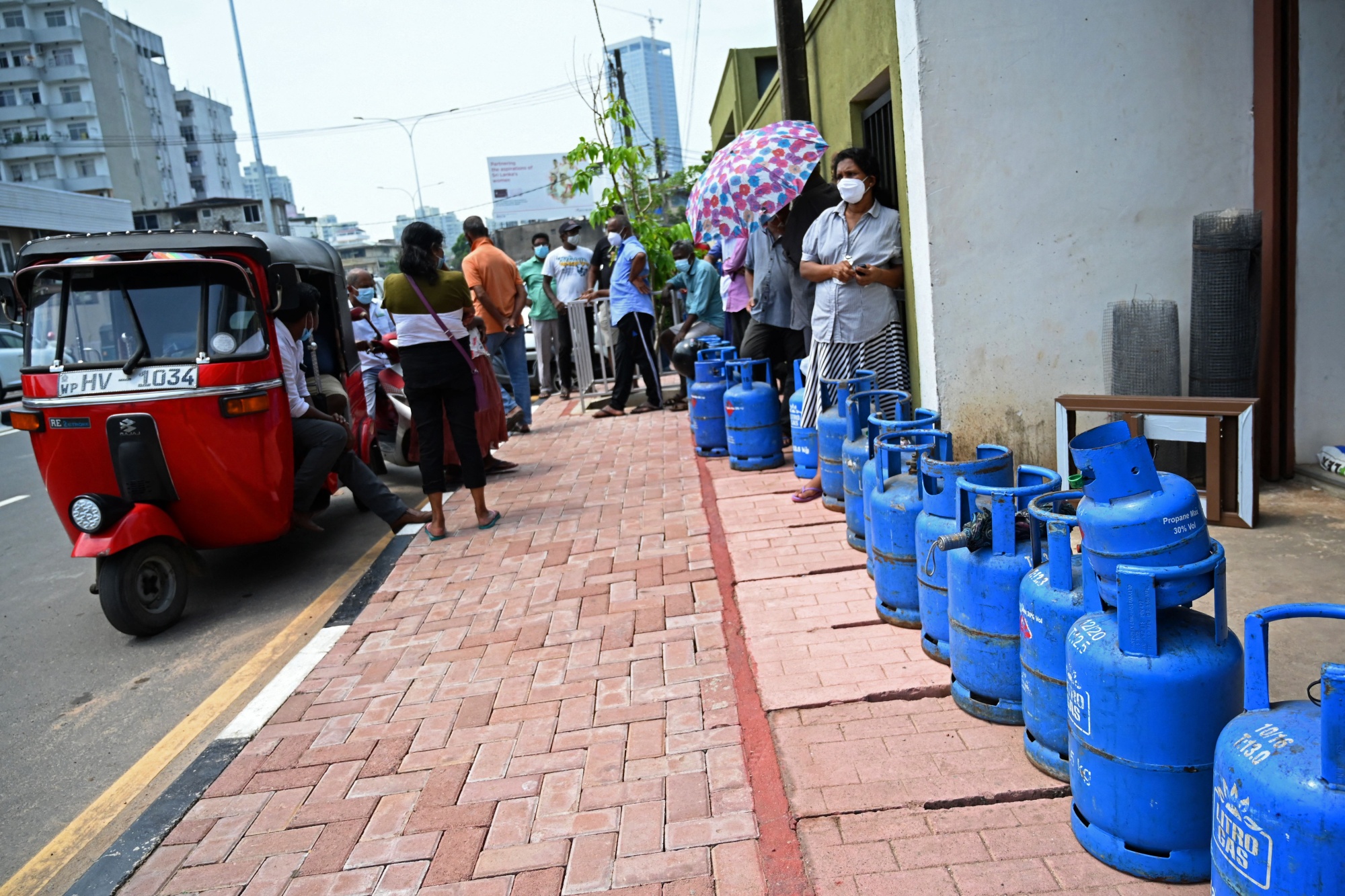Written by Arun Janardhanan
Vani Susai, a 31-year-old school teacher working in Batticaloa in Sri Lanka’s eastern province, recalls the first signs of the economic crisis in the last week of January. “That Sunday morning, I ran out of gas. I called the agency to check for a cylinder and was told they could not deliver it for several days. I went in search for one, going shop to shop. I finally found a cylinder after three hours.”
Two months later, the cooking gas supply is down to once a week. “Everybody goes to this one place on Sunday and stands in a queue that starts forming at 4 am.
They give 300 tokens at one time, while the queue has over 1,000 people,” says Susai, adding that as a working woman and mother, she can’t spare the time to stand in a queue. Her husband works in the Gulf. “If I get a chance, I will leave.”
Last week, Tamil Nadu received more than a dozen people who had fled Lanka under similar economic duress. The country is facing one of its worst economic crises, battered by the Easter Sunday blasts of April 2019, two Covid waves and now the Russia-Ukraine war. The setbacks have hurt the tourism industry that is the bedrock of the Lankan economy. The island country that imports almost everything from outside has been struggling to manage supplies.
Susai says that her usual expense on essentials for a family of three, her mother, daughter and her, was around Sri Lankan Rs 30,000 a month. “But this month, I have already spent Rs 83,000. There is a shortage of milk powder. One has to struggle for rice and daal. There is seven hours of load shedding but there are no candles. A strip of 12 paracetamol tablets costs Rs 420 and many medicines have disappeared. My salary is Rs 55,000 and we can manage with cash sent by my husband. But can we eat money?”
Dr Samantha Kumara, a dental surgeon from the Kurunegala northwestern province, is in a similar situation. His son is studying in Australia and he has not been able to send money to him. “All dollar accounts have been frozen,” says Dr Kumnara.
Rahaman Thasleem, who worked as a taxi driver, has taken up carpentry work now in Negombo, a western coastal city. He wonders whether India will give him asylum or he should try for Dubai. Thasleem, who has changed five jobs in the last three years, says they are struggling to manage. “I was able to get some firewood due to gas and fuel shortage, but my wife has never cooked on firewood. And cooking on firewood takes too much time; she also works.”
Hussain Mohammed, who plies a taxi in Colombo, says they are bracing for a further impact from rising fuel prices. “Many private buses have stopped services, government services have become erratic, some train services have been affected.”
Batticaloa Bishop Joseph Ponniah says “people are suffering from north to south, east to west”. “I hear stories of misery everyday.” The bishops across the country held a meeting in Colombo on Tuesday to discuss the situation.
Dilith Jayaweera, a Colombo-based business tycoon, says he feared such a situation ever since President Gotabaya Rajapaksa appointed P B Jayasundhara as his secretary. He was referring to a controversial official who worked with previous regimes and is being blamed for many decisions leading to the financial mismanagement. Jayaweera’s businesses include an advertising company that worked for the Rajapaksas during the war against the LTTE, a popular TV channel, FM stations, dailies, and a leading mercantile establishment, George Steuart and Co.
“My company (George Steuart) recently found it difficult to import some life-saving medicines. My newspapers are facing problems. We have reduced the number of pages,” Jayaweera says.
Raza Akram, a film producer based in Colombo, says the crisis has hit at a time when Hollywood was increasingly looking to Lanka for shooting. “I can see at least a 30% increase in budgets of my two ongoing productions,” he says.
A senior official in Colombo says “every person is suffering”. “The government is trying to make people work from home, but the load shedding is a challenge. Hospitals are affected as there is no diesel for generators.”
The official adds that that the government hopes to announce some financial assistance for everyone, ahead of the coming New Year festivities. Attempts are being made to get a few shipments of rice from China, and petrol and gas supplies.
United National Party leader and former Prime Minister Ranil Wickremesinghe, however, warns that the crisis will last at least five years. Blaming this on the “reversal of economic policies” by the Rajapaksa government, he says it has shaken the confidence of investors.
Milinda Rajapaksa, Additional Director General, Ministry of Information, says they are banking on Indian and Chinese credit lines. “In April first week, the Finance Minister will meet chiefs of the World Bank and IMF. Talks have been held already with the IMF on a restructuring plan.”


